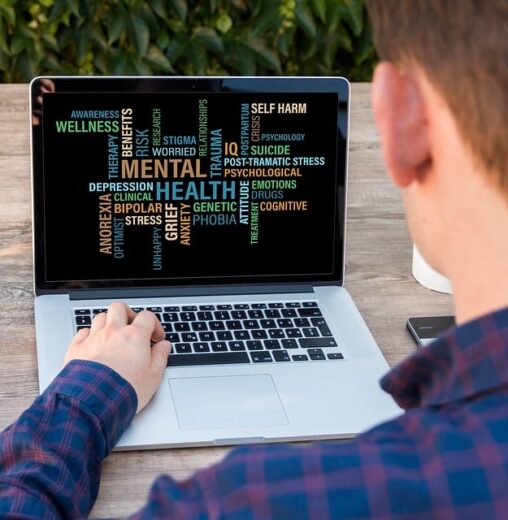Youth, in a nation, is considered an asset as they depict the most attractive human characteristic : the courage to stand up for change. Their energy is contagious and encircles all aspects of life. But what if this energy and clarity of mind are contaminated by modern world innovations? With almost everybody being addicted to social media these days, the mental health of a big chunk of people has been corrupted, although for better or worse, that’s a discussion for another time. But for now, let us know what factors are affecting the teen’s mental health these days and what possible consequences they can suffer.

Teenagers and social media consumption
Teenagers and the extent of social media consumption
Survey-based studies have indicated that almost 95% of teenagers between the ages of 13 to 17 have, in some ways, direct access to social media platforms. Among these, nearly one-third further added that they do spend the maximum time of their day scrolling, posting, or consuming content. Moreover, when inquired about the most likable social media platforms, most of the teens reported that their favorite ones are Instagram, Snapchat, and TikTok, all of which are struggling with creating a safe place that is inclusive for all age groups. Owing to such horrifying statistics, scientists are calling youth mental health ‘the defining public health issue of our time’.
Another research conducted to evaluate social media use among the school showed that most of the students who study in grades 8 to 10 spend a daily average of 3 hours and 30 minutes on their phones. When such cases were further pursued, it was evident that such teenagers who have a higher consumption of social media were more prone to develop moderate to severe mental health disorders.
Problems associated with social media
The social media platforms are full of the following unhealthy practices which are vomited out by hateful people toward others:
- Name-calling
- Sharing someone’s images without consent
- Spreading rumors which have no basis in reality
- Sending explicit images
- Making physical threats
- Tracking someone’s private content
All of these activities not only depict the poor mental health of the one doing these but also justifies the scale of effect these can have on a healthy person’s mental health.
Effects of social media on teen’s mental health
With the excessive use of social media, natural human feelings are manipulated mostly in a negative way. Therefore, it is likely for people especially teenagers to fall trapped to the following mental health issues:
- Sadness
- Feeling of loneliness
- Hopelessness
- Lower self-esteem
- Inferiority complex
- Unexplained anxiety
- Constant stress
- Depression
- Frequent suicidal thoughts
- Memory loss
Is there a way out?
The way social media has seeped through our doors, it is impossible to completely abandon it. However, certain safety measures must be taken to ensure that its harmful effects on teen’s mental health are limited. In this regard, the following measures are recommended:
- Putting a limit on your time spent on social media on a daily basis can significantly contain the risk of stress and depression among other mental health conditions. It can be done by putting a screen timer that indicates how many hours you have spent on a certain app in a day. Thus, by keeping this check and balance, it is possible to avoid harm. Emphasizing this practice, both The Child Mind Institute and The National Center for Health Research have argued that the duration of time spent on social media by a person has an inverse proportionality with their happiness i.e. the lesser the time spent scrolling and consuming content on social media apps, the happier would be the person. This finding fortifies the importance of cutting down the screen time.
An example of the ‘time limit reached’ notification with an option to simply ignore it and continue
- Spending time in nature is one of the best escapes possible from social media. It is important for the kids as well as teenagers to go out. This way, not only a good amount of daily exercise can be taken in but also the social interactions shape the human brain in a positive way.

Spending time in nature is beneficial for teen’s mental health
- Adopting a hobby can also be beneficial in such cases. Most people do not do much in their free time rather than just aimlessly scrolling their phones. If a child has a hobby and a goal associated with it, it becomes much uncomplicated to keep her or him away from social media for an ample amount of time.
- Finally, policymaking should be the only way out for social media companies. Strict legislation is needed in light of evidence-based research about how these platforms are run and what harmful effects they cause. Lawmakers should make these big corporations do more when it comes to child safety rather than just putting limits or labels on the content that is easily dodged.
Conclusion
The use of social media, in this time and age, is inevitable for anyone, especially children and teenagers. Along with its useful features such as making friends online and learning new stuff based on science and languages, social media, if used unguided, can cause severe damage to teen’s mental health. Therefore, it is important to monitor what your child is watching as well as how much time she or he is spending on social media every day. Making social media a safer place for everyone is a responsibility we all share but until then, its use with care can prevent much damage.

PhD Scholar (Pharmaceutics), MPhil (Pharmaceutics), Pharm D, B. Sc.
Uzma Zafar is a dedicated and highly motivated pharmaceutical professional currently pursuing her PhD in Pharmaceutics at the Punjab University College of Pharmacy, University of the Punjab. With a comprehensive academic and research background, Uzma has consistently excelled in her studies, securing first division throughout her educational journey.
Uzma’s passion for the pharmaceutical field is evident from her active engagement during her Doctor of Pharmacy (Pharm.D) program, where she not only mastered industrial techniques and clinical case studies but also delved into marketing strategies and management skills.



















